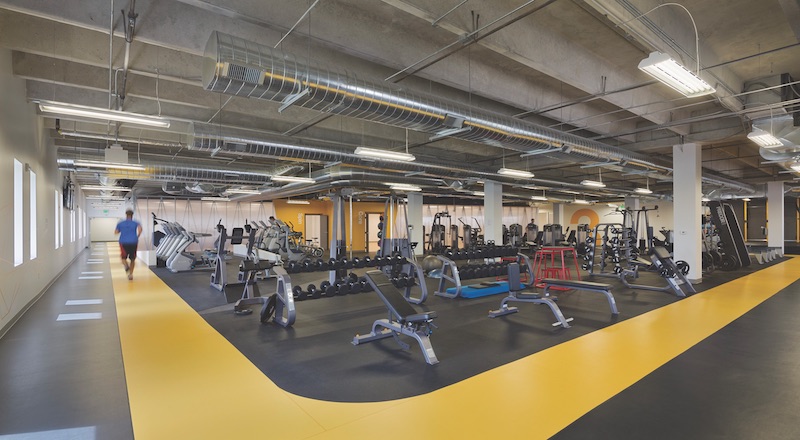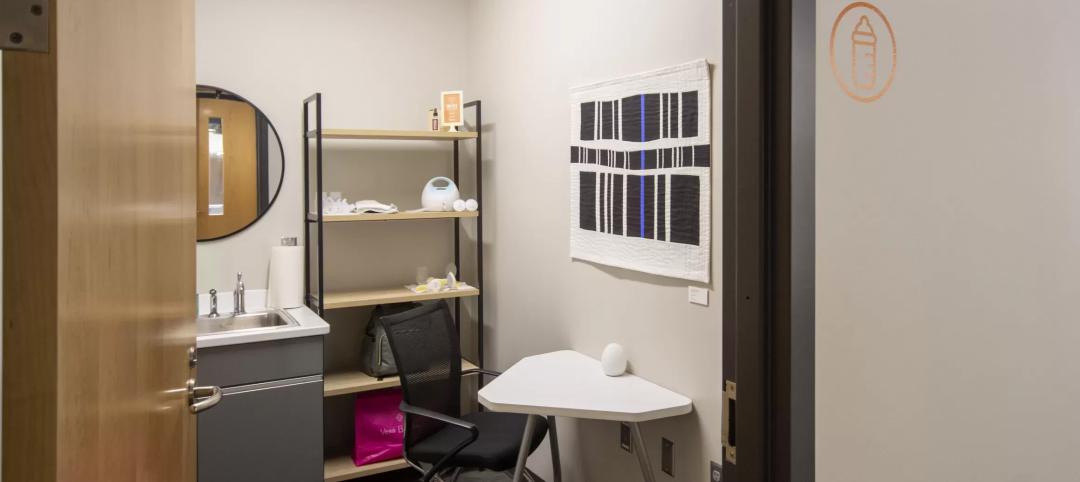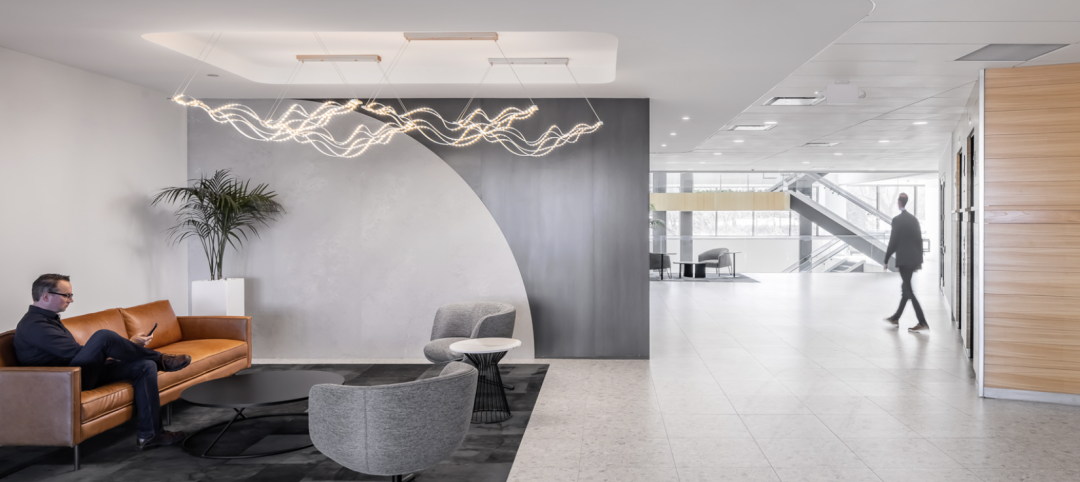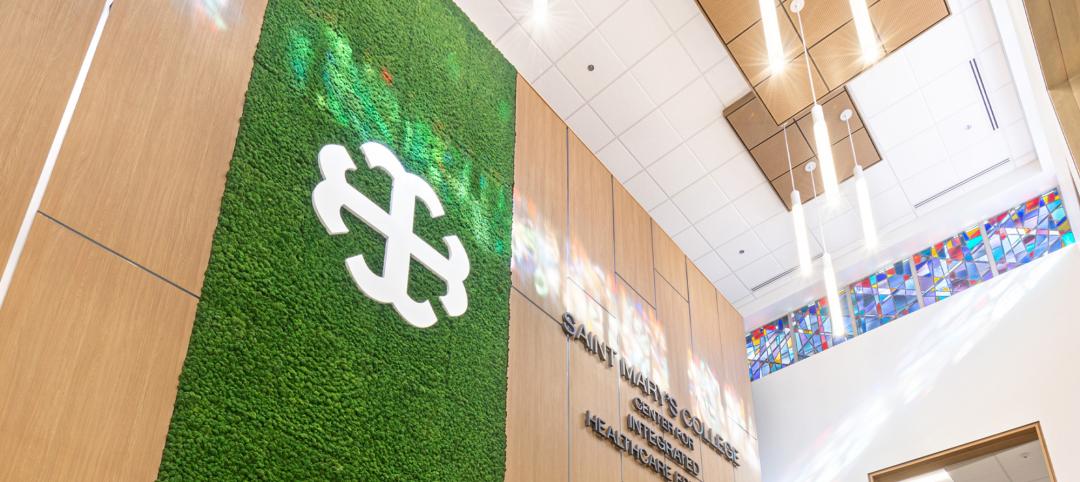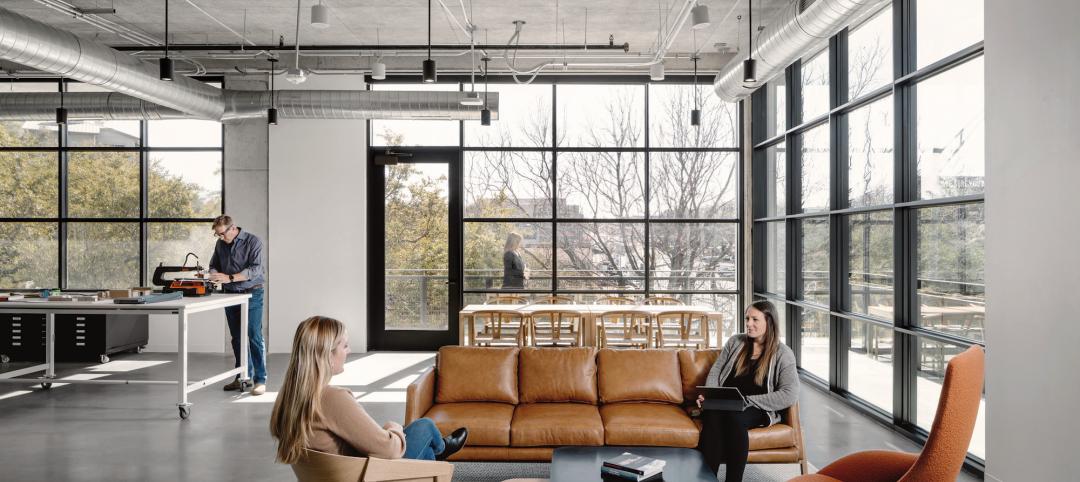Five years ago, 3form, a materials manufacturer, did a top-to-bottom remodel of its Salt Lake City headquarters campus that included adding a 14,500-sf gym, which was built with the company’s sustainable building products.
3form also instituted a policy that employees who used the gym and complied with certain health metrics would qualify for discounts on their monthly payroll contributions for healthcare coverage. In December 2018, 3form had saved so much money on healthcare costs as a result of this program that it was able to offer its employers free coverage for that month.
The savings equaled 8.3% of the workers’ gross pay in December.
Talley Goodson and Wynn Clayton, 3form’s CEO and CFO, “saw that something was happening on the horizon” about increasing healthcare costs when they approved the investment for the gym, says Christian Darby, the company’s Vice President of Design and Marketing. They took a “holistic approach” whose goal was to improve the overall health of 3form’s workforce, while controlling healthcare costs.
As of December the company employed 382 people and had a total of 909 covered under its healthcare plan. Family members can use the gym, which offers 24/7 access. The facility has eight contracted personal trainers whose jobs include evaluating the gym’s equipment each year for functionality and usage.
Beyond the gym, 3form provides its workers with an onsite doctors’ office for medical appointments, as well as blood tests and prescription refills. Services include follow-up care and counseling in the office or via telephone.
Darby says 3form has had the same healthcare provider for the past four years and into 2019. The company raised its employees’ payroll deduction for healthcare by only 3% in 2018—compared to the national average of 10-12%—and is not increasing that deduction for coverage in 2019.
Darby says participating employees are required to check in with the company’s clinic four times a year, during which 3form’s medical staff might suggest health “opportunities” for employees or their family members to pursue.
To get the discounts on premiums, employees must participate in a Health Risk Assessment to see if they fall outside of established standards for cholesterol, body mass, diabetes, asthma, hypertension, health of mind, eating habits, stress level, or tobacco use. If so, they enter a program and engage in a process that can include taking prescribed medicine or meeting with medical professionals.
In Darby’s case, the med staff found that his cholesterol was “a tad high,” he says, and established targets and a strategy to help lower it.
Related Stories
Government Buildings | Aug 7, 2023
Nearly $1 billion earmarked for energy efficiency upgrades to federal buildings
The U.S. General Services Administration (GSA) recently announced plans to use $975 million in Inflation Reduction Act funding for energy efficiency and clean energy upgrades to federal buildings across the country. The investment will impact about 40 million sf, or about 20% of GSA’s federal buildings portfolio.
Market Data | Aug 1, 2023
Nonresidential construction spending increases slightly in June
National nonresidential construction spending increased 0.1% in June, according to an Associated Builders and Contractors analysis of data published today by the U.S. Census Bureau. Spending is up 18% over the past 12 months. On a seasonally adjusted annualized basis, nonresidential spending totaled $1.07 trillion in June.
Office Buildings | Aug 1, 2023
Creating a nurturing environment: The value of a mother’s room in the workplace
Since becoming an architect, Rebecca Martin of Design Collaborative has drawn a mother’s room into numerous projects. But it wasn't until she became a mom that she fully appreciated their importance in the workspace.
Adaptive Reuse | Jul 27, 2023
Number of U.S. adaptive reuse projects jumps to 122,000 from 77,000
The number of adaptive reuse projects in the pipeline grew to a record 122,000 in 2023 from 77,000 registered last year, according to RentCafe’s annual Adaptive Reuse Report. Of the 122,000 apartments currently undergoing conversion, 45,000 are the result of office repurposing, representing 37% of the total, followed by hotels (23% of future projects).
High-rise Construction | Jul 26, 2023
A 33-story Singapore tower aims to reimagine work with restorative, outdoor spaces
Architecture firm NBBJ has unveiled design details for Keppel South Central, a commercial tower in Singapore. The project, which is slated for completion in late 2024, will transform the original Keppel Towers into a 33-story, energy-efficient building that aims to reimagine work by providing restorative spaces and connections to the outdoors.
Multifamily Housing | Jul 25, 2023
San Francisco seeks proposals for adaptive reuse of underutilized downtown office buildings
The City of San Francisco released a Request For Interest to identify office building conversions that city officials could help expedite with zoning changes, regulatory measures, and financial incentives.
Market Data | Jul 24, 2023
Leading economists call for 2% increase in building construction spending in 2024
Following a 19.7% surge in spending for commercial, institutional, and industrial buildings in 2023, leading construction industry economists expect spending growth to come back to earth in 2024, according to the July 2023 AIA Consensus Construction Forecast Panel.
Office Buildings | Jul 24, 2023
A twist on office conversions maximizes leasable space
A recent NELSON Worldwide project is made more suitable for multiple workplace tenants.
Biophilic Design | Jul 20, 2023
Transform your work environment with biophilic design
Lauren Elliott, Director of Interior Design, Design Collaborative, shares various ways biophilic design elements can be incorporated into the office space.
Office Buildings | Jul 20, 2023
The co-worker as the new office amenity
Incentivizing, rather than mandating the return to the office, is the key to bringing back happy employees that want to work from the office. Spaces that are designed and curated for human-centric experiences will attract employees back into the workplace, and in turn, make office buildings thrive once again. Perkins&Will’s Wyatt Frantom offers a macro to micro view of the office market and the impact of employees on the future of work.


